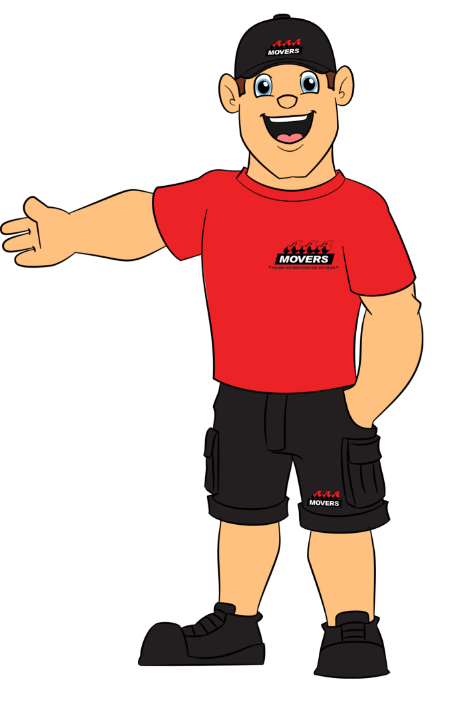When moving to a new home, it’s wise to start packing for your move day sooner rather than later. It’s at the top of the list, along with planning a budget for your move and creating an inventory list for your home. Let’s talk through downsizing for a move. When starting the downsizing process, it’s easy to feel overwhelmed, distracted, or experience “analysis paralysis.” These emotions are normal. You can overcome that by starting small and tackling your space one room at a time. Here are the steps to prepare yourself to downsize and get organized: The best way to downsize when moving is to start small by picking one room or even just one drawer or closet. When you focus on everything you have to do, your task will feel difficult. The goal is to make everything feel “bite-sized.” Start in a room that you don’t use very often. You’ll find it easy to sort through rarely-used items before moving on to everyday favorites. Then, go through the room, separating items into the following piles: A big part of downsizing and moving is deciding what to keep, throw out, sell, or donate. First, consider your new space and if the item will fit there. Below is a list of questions you can ask yourself if you’re still unsure whether or not to keep something: Most Americans have an excess of belongings, many of which we may not need in our new home. Downsizing makes the moving process more manageable because there’s less stuff to move and contend with. Following these downsizing tips for moving ensures you’re only bringing the things you need, not just packing up everything you own! If you need more time to decide the fate of your belongings or need a temporary storage solution while you're moving, AAA Movers has you covered with our climate-controlled storage pods that are monitored 24 hours per day. Now that you’re equipped with the tools and resources on how to downsize for a move and have taken inventory of your belongings, it’s time to sell items in good condition online. Selling everything and moving can feel like a fresh start and can create space for you to bring new things (and memories) into your life. Selling things online is convenient, with a wide variety of online marketplaces, auction sites, and apps available based on what you’re looking to sell. Each site’s benefits and drawbacks vary based on your goals. For example, a highly trafficked site with higher fees might be more convenient if you're looking to sell quickly. Smaller and more user-friendly sites may be your best bet if you want to get the most bang for your buck. With so many to consider, let’s review some popular options' pros and cons. If maximizing your profit is a priority, local online marketplaces are a great option because they don’t take a cut of your sales. However, you are responsible for handling all the arrangements, including meeting with your buyer. Also, if a buyer flakes, you’re out of luck. Craigslist has continued to prove its handiness over the past 25 years. Posting items for sale is free, and it’s as simple as selecting “post to classifieds” and answering a few questions. Facebook Marketplace has become a simpler version of Craigslist and is arguably one of the best places to sell things online. You can find everything from apartment listings to cars—even houseplants. To sell an item, select “sell” on the marketplace page, select the category it falls under, add videos or photos and a description, and you’re all set. Nextdoor isn’t just an online community for your neighborhood to share news and updates. It’s also a free platform for buying and selling clothing, electronics, furniture, and more items. This is a better option for those who don’t want to meet up with strangers to handle transactions because you can find out more about who you are dealing with. OfferUp combines the features of Craigslist and eBay with a local focus. It’s also incredibly user-friendly—you can chat with potential buyers, and negotiate prices, and everyone who uses the app has a profile and reviews. It then uses technology to tag your items and post them based on location. Lastly, it doesn’t charge a fee to sellers or shoppers. Selling locally is cheaper and more convenient if you’re not interested in jumping through hoops to sell your stuff. On 5miles, your listings are only available to those within five miles of you (hence the name!). The site even offers safe location suggestions for meeting up with your customer. Poshmark is a social marketplace to sell your name-brand clothing, accessories, and home goods in good condition. Users on this platform can follow each other's closets, like items, leave comments, and negotiate prices. When an item is purchased, Poshmark deducts a shipping fee based on the shipping speed that you pre-determine. Selling on auction sites is convenient and allows you to reach a broader potential customer base, but remember that you’ll likely be required to purchase a selling plan for whichever site you use and possibly pay a fee on each sale. A big plus, however, is that you don’t have to meet your buyer in person, which can be a potential safety issue. Amazon is considered one of the largest online marketplaces in the world, and its site allows you to re-sell goods such as books, CDs, DVDs, and other items in excellent condition. The drawback to selling on Amazon is that you have to register to be an approved seller. There are also fees associated with each sale, and there’s more competition with the same or similar products being sold in new condition. eBay is still one of the most visited online auction sites. The selling plan structure is simpler, with eBay taking 10% of the final sale on most items. If you post more than 50 items for sale in a month, eBay may start charging an additional $0.30 per item. eBid is similar to eBay but based in the UK. eBid takes no more than 3% of the final selling price of your item, which doesn’t include shipping costs. Like Amazon and eBay, you can upgrade your seller account for a monthly or weekly fee and eliminate the percentage they take out of your sale. Etsy is an online marketplace for handmade goods or vintage items. You pay $0.20 to list an item and then a 5% fee on the final sale price. You must also use Etsy payments, which charge 3% plus an additional $0.25 to process. Etsy is also a reasonably specific marketplace for homemade items, so you’ll have to look elsewhere for general household items. Esty also requires you to register and set up an online storefront to begin selling. Bonanza has a similar setup to Amazon and eBay, but they also offer to advertise your post online for a higher percentage fee of your final selling price. However, their pricing structure is a little more complicated. Moving doesn’t have to be stressful. Relieve your strain with our Chicago, Saint Paul, and Minneapolis moving teams. Book your local or long-distance move with a full-service moving company and check two items off your move list — moving day services and stress-free moving. AAA Movers has been delivering excellent service for over 50 years. Call our certified professional movers today or get your free online moving quote.Downsizing Tips for Moving
Start Small and Sort
Deciding What to Keep
Decluttering Your Home
Need More Time to Decide? Store It
Best Place to Sell Things Online
Selling Through Online Apps and Marketplaces
Craigslist
Facebook Marketplace
Nextdoor
OfferUp
5miles
Poshmark
Online Auction Sites
Amazon
eBay
eBid
Etsy
Bonanza
Bonanza charges a 3.5% fee based on the final sale price of your listed item, and they also charge on any shipping costs over $10. For example, if you sold an item for $50 and it shipped for $12, they would charge you 3.5% on a total of $52 (roughly $1.82). If you sell something for $500 or more, you pay 3.5% on the first $500 and an additional 1.5% on any amount over $500.Preparing for Moving Day










